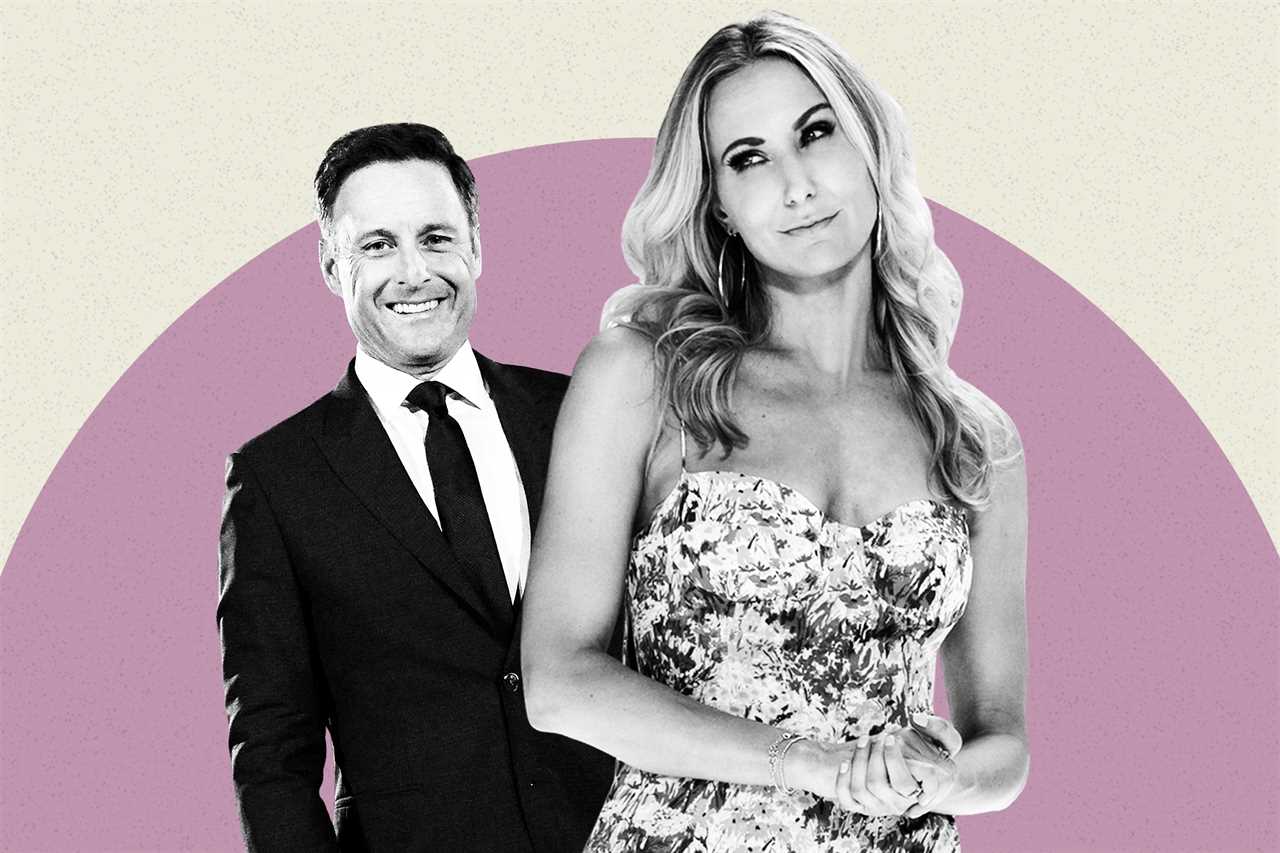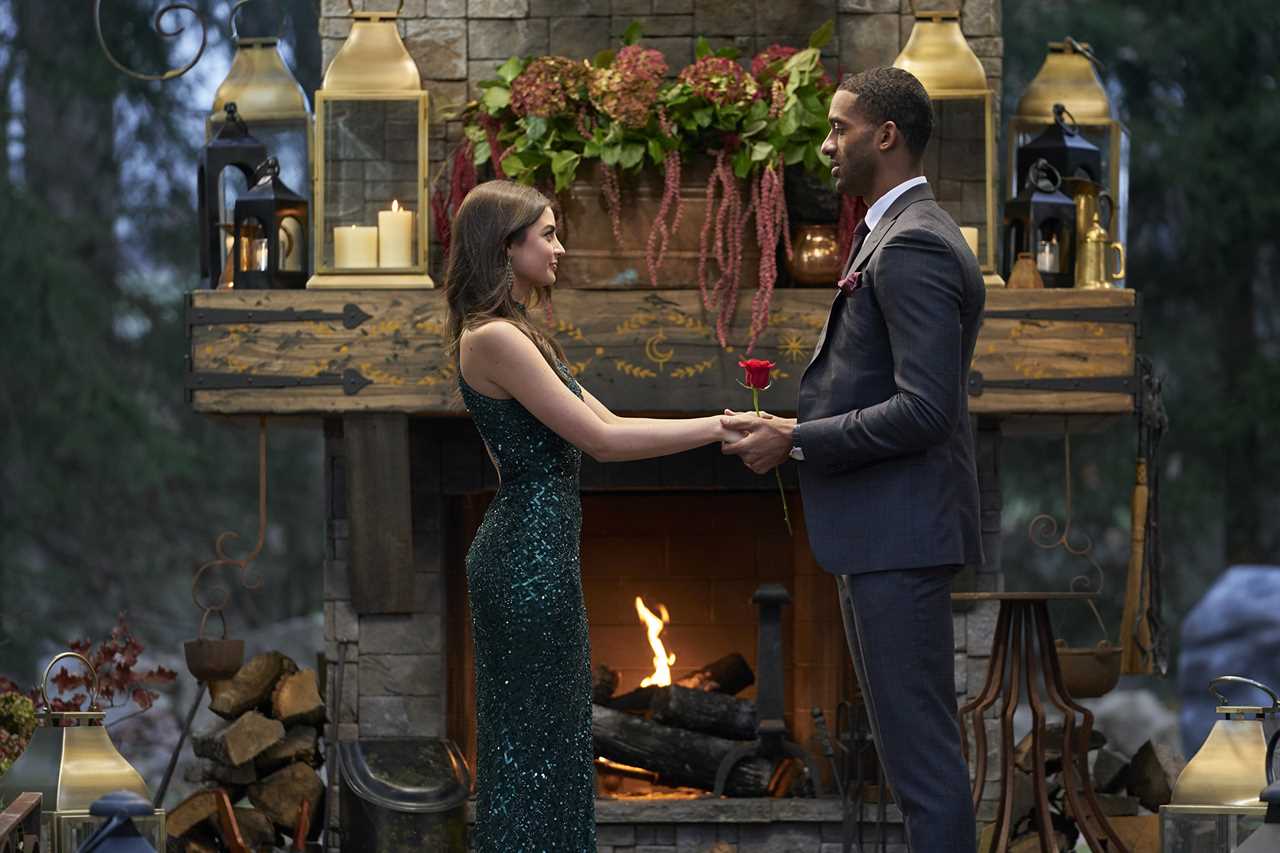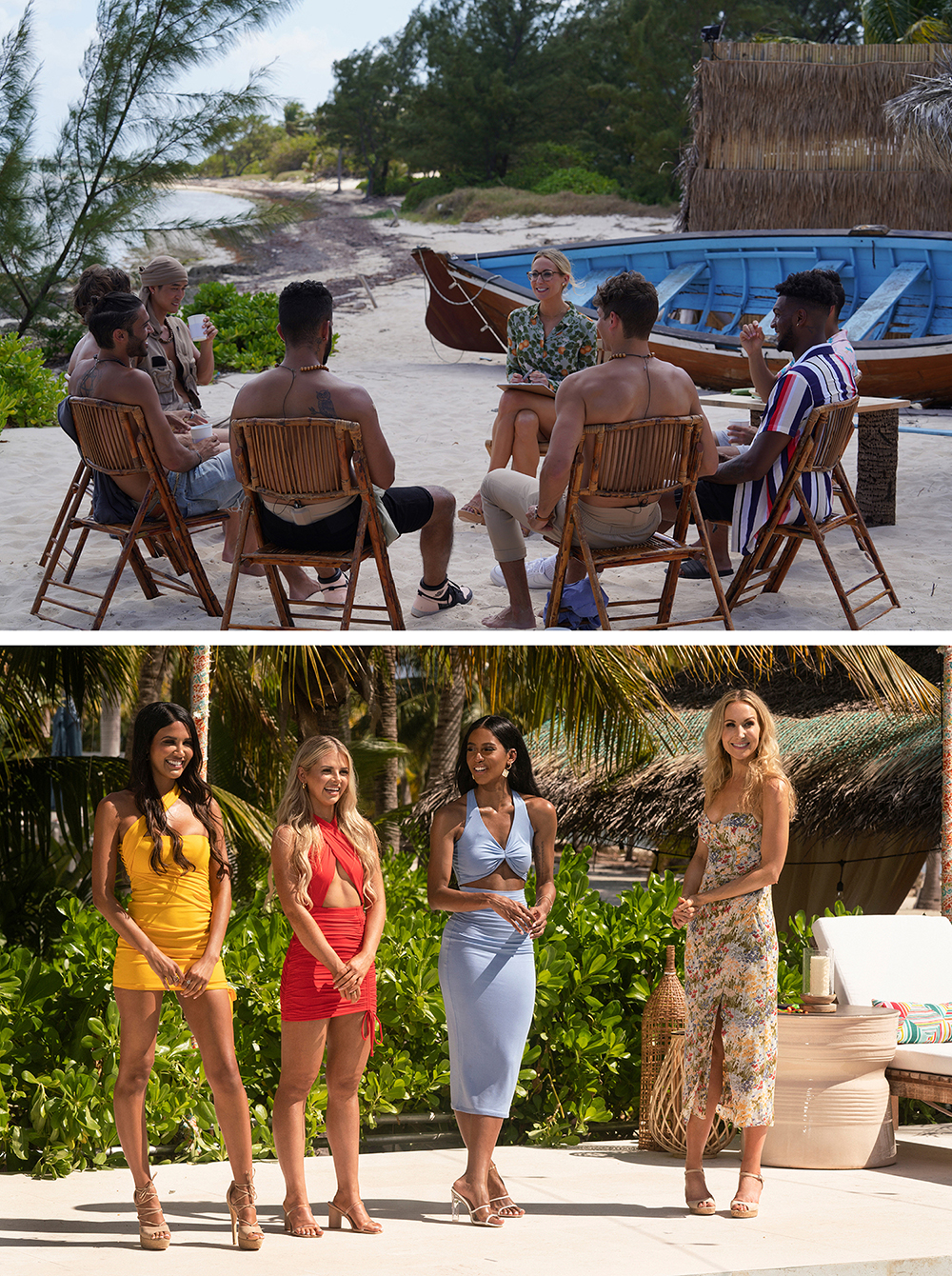
Follow conservative punditry over the past few years, and you might think America is becoming a nation of unrepentant singles. Last July, Ohio Senate candidate J.D. Vance warned a conservative think tank about a “civilizational crisis,” marked by declining marriage and birth rates, and promoted by the “childless left.” Census data that shows low marriage rates among millennials and Gen Z-ers — only 29 percent of 18-to-34-year-olds were married in 2018, compared to 59 percent in 1978 — begets headlines bemoaning a “marriage crisis” or predicting “the end of marriage in America.”
But if the dream of marriage is dead, you wouldn’t know it from the trailer for the upcoming season of ABC’s “The Bachelorette.” The three-minute video, released last week, features a single schoolteacher named Michelle Young, a herd of healthy male suitors vying for her hand and a shimmering word cloud of courtship cliches: “I’m looking for my soulmate.” “You give me goosebumps.” “When I’m with him, I feel fireworks.” Young declares that “I’m ready to fall in love,” and she wants more than just romance. “Miss Young,” one of her students says, “is looking for a husband.”
Young’s season, which premieres on October 19, will be the 18th installment of “The Bachelorette,” which launched in 2003. The show’s male-lead version, “The Bachelor,” premiered in 2002. In the early days of the franchise, TV matchmaking seemed shocking and subversive — a radical game imposed on a tried-and-true process of finding a mate. Since then, dating shows have evolved in ever more lurid permutations, including the UK’s “Love Island,” where contestants who fail to couple up with another are booted in each round; Netflix’s “Too Hot to Handle,” where attractive singles win money for not having sex with one another; and even HBO Max’s “FBOY Island,” which pits earnest suitors against “F-boys” — men who pride themselves on casual flings — in a cheeky battle for the island’s women.
All of this might seem terrifying to the conservatives worried that Tinder and liberals are destroying American marriage. Actually, collectively, they might be the most conservative shows on television. As a group, all the way to F-Boy island, they re-enact and reaffirm a dating process that has less to do with 21st century swipe-right apps than 19th-century courtship rituals. And for many years, viewers have lapped it up. One study from the data-tracking company PeerLogix found that dating show viewership spiked during the pandemic, even drawing viewers away from other genres.
The popularity of these matchmaking shows, which are watched at once ironically and aspirationally, suggests a different spin on the delayed-marriage stats. The census data, after all, doesn’t address the question of whether singlehood is driven by a “childless left” culture or harsh economic reality, or whether young people intend to put off marriage for awhile or opt out of it entirely. A few years ago, a spate of liberal books and articles marveled at a growing cohort of single women — who tend to behave differently from married women in the ballot box — and speculated about the political power they might hold if their numbers continue to grow. But in a 2020 survey commissioned by the wedding platform “The Knot,” 80 percent of the Gen Z-ers and millennials reported that they had spent some time imagining their wedding day, and most of them expected to be married within two to five years. That mood matches a 2018 Pew report that found that, while they aren’t marrying young, nearly two thirds of millennials still hope to marry someday, and a quarter say they just haven’t found a person with the qualities they’re looking for.
The fact that more people marry later in life has changed the institution, and by extension, the stakes around courtship, says Stephanie Coontz, a professor emeritus at The Evergreen State College and the author of Marriage, a History. Older singles are likelier to already be financially independent and to prefer a union with an equal — which means they often have higher standards for a potential spouse. For singles surveying the landscape, “that gets very anxiety-producing,” Coontz says.
Reality TV showcases those modern anxieties in a place where the old-fashioned rules still apply. It’s a porthole to a universe where every woman harbors dreams of a floor-length white dress, every man earnestly asks for his girlfriend’s father’s blessing, and — notwithstanding a handful of shows like Logo’s gay-themed “Fire Island” — heteronormative, cis-gendered pairings are the only ones that exist.
If reality TV reflects actual desires, then these shows are a telling statement about the culture wars — a suggestion that the dream of traditional marriage, the kind that leads to starter homes, little league games, joint IRA accounts and the attendant political priorities, is still very much alive, no matter your political persuasion. In reality TV land, singlehood isn’t a newly desirable state, but rather a purgatory that people will exit as soon as their finances allow, or they meet the right partner, or an army of TV producers steps in to intervene. And these shows aren’t an anachronism as much as a cry for a roadmap — a shortcut to getting married once and for all.
***
A few dating shows do celebrate the disposable aspects of Tinder culture; Netflix’s recent “Sexy Beast” took shallow, attractive people, slathered them in grotesque makeup, and proved they would still be game for one-night stands. But many more shows promote the old-school aspiration of leaving casual sex and multiple partners behind and starting a new life with Ms. or Mr. Right. The courtship practices they feature, Coontz notes, originated in England and America back in the 1700s, when love had newly become a justification for marriage. (One upcoming show on Peacock, “Pride and Prejudice: An Experiment in Romance,” will sequester its contestants on a country manor and send them on romantic carriage rides.)
Audiences are hardly unaware of the contradictions within these shows, or the artifice behind them. Books have been written, and scripted series produced, about the unforgiving editing behind the scenes on “The Bachelor” and the inventive ways producers find to make contestants cry on camera. In that franchise, producers’ commitment to keeping politics out of the story can make the show feel disconnected from real life. A glaring shortage of contestants of color eventually gave way to a diversified cast, but race-related scandals have lately roiled the show, leading to the ouster of the longtime host. Even the declarations of love on “The Bachelor” can feel absurd — somehow, it takes a nanosecond for a contestant to determine that the Bachelor or Bachelorette in question is “the one.”

Still, throughout it all, “The Bachelor” has managed to maintain a veneer of authenticity, in the sense that nearly every participant seems committed to finding love. Those deemed by fellow cast-members or audiences to be “there for the wrong reasons” — social media fame, for instance — are confronted, shamed and often bullied off the show.
In the “Bachelor” universe, any motivation other than pure love feels like the ultimate betrayal — and a loyalty to the show and its rules somehow validates the relationships that come out of the process. “It’s fake and it isn’t, and I think that part of what we watch for is the ability for real feelings to thrive under unreal conditions,” says Suzannah Showler, the author of Most Dramatic Ever, a 2018 book of essays about the franchise.
Showler notes that “Bachelor in Paradise” — a popular spinoff that puts fan-favorite contestants from different “Bachelor” season on an island, and lets them make matches among themselves — better reflects the true experience of modern-day dating. “There’s choice and there’s selection and there’s exchange and there’s a period of time when you’re not committed,” she says. But even that show is pitched as a path toward finding a special someone. The gossip sheets are currently aflutter over the engagement of two recent “Paradise” contestants.
Most of the “Bachelor” franchise’s many imitators have tried, in ever more inventive ways, to steer people into successful matches. The Lifetime series “Married at First Sight,” which was recently renewed for a 14th season, takes the choosing out of courtship completely, letting a panel of experts arrange marriages based on qualities they determine will make the couples happy. The stated purpose of Netflix’s 2020 hit, “Love is Blind,” meanwhile, was to learn whether people could fall in love, sight unseen. Contestants spent the first few weeks communicating only by voice as they sat in separate rooms, and were only allowed to set eyes on each other after they’d declared their intention to marry. A second season is set to premiere in February 2022.
“FBOY Island,” which aired last summer, doubled as a parody of reality dating shows themselves; the rules changed several times midstream, and host Nikki Glaser, a comedian known for celebrity roasts, presided with arch comments and snarky put-downs. Still, the overarching message was strikingly traditional: that monogamous love is far preferable to the unsatisfying treadmill of endless hookups and rotating partners. The show’s creator, a veteran “Bachelor” producer, told Insider that his goal was to reflect what dating really feels like for twentysomethings today: never-ending doubts about intentions, constant fear of being discarded or used for sex. “We’re not selling a fairytale,” he told the website. “We’re selling a bizarre reality that people are living.”

“FBOY Island” began by presenting three bikini-clad women with 24 male contestants who had secretly identified themselves as “nice guys” or “FBoys.” When a man was eliminated from the show, his status was revealed — and if he was an FBoy, he was exiled to a dusty thatched hut dubbed “Limbro,” to serve a kind of penance for past transgressions. Eventually, the show revealed the identity of the FBoys and let the women decide whether to choose one anyway. Each of the final winners was given $100,000 and a choice: Split it with your new partner as seed money for a relationship, or break up with the girl and take the money for yourself.
One victorious FBoy, fully rehabilitated, split the prize with his new mate. But another, named Garrett, stuck by his dastardly ways and broke the relationship off. “This is a game. I told you what I was. I’m an FBoy,” he said unapologetically. It was a devastating moment. The other participants cringed. Glaser glared at Garrett with dagger eyes. And then, she announced that the rules had changed: the prize money was going to charity, and Garrett was going home emptyhanded. It turns out, he had misunderstood the premise of the show. It wasn’t a strategy game that he could master through manipulation, but a ritual shaming of men who refused to settle down.
In the end, “FBOY Island” shared “The Bachelor’s” deeply un-subversive message that monogamy is the natural order of things, and marriage could soon be to follow. Even within a TV brand known for the sauciest, most cynical prestige dramas, tradition won. These shows suggest that marriage is as healthy as ever, but just sometimes requires some outside support: a scaffolding of old-school rituals, a veneer of shame, a set of TV producers who can nudge people in the right direction. Conservatives can rant about the state of unions within the union, and suggest any number of fixes; at that think tank last summer, J.D. Vance proposed a range of complicated incentives to get people to marry, after all. But if millennials and Gen Z-ers watch enough reality TV, they’ll get all the persuasion they need.
----------------------------------------
By: Joanna Weiss
Title: The Surprising Conservatism of Reality Dating Series
Sourced From: www.politico.com/news/magazine/2021/10/17/reality-dating-series-conservatism-515581
Published Date: Sun, 17 Oct 2021 06:00:47 EST






